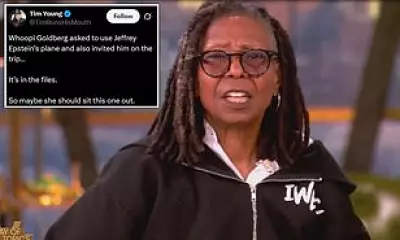
In a powerful and unexpected moment during television's biggest night, acclaimed late-night host Stephen Colbert used the 2024 Emmy Awards stage to issue a direct challenge to Hollywood's major studios and streamers.
The CBS star, delivering a critical plea that shifted the evening's tone, demanded that entertainment corporations immediately rehire the hundreds of production staff left unemployed following recent industry strikes before planning next year's ceremony.
A Stark Warning to Studio Executives
Colbert didn't mince words as he addressed the glittering audience of television elites. "This was a hard year for a lot of people," he stated, referencing the extended Writers Guild and SAG-AFTRA strikes that paralysed production across California. "A lot of people lost their jobs, and those people are not back yet."
His comments served as a stark reminder that while A-list actors and top-tier writers have largely returned to work, countless behind-the-scenes crew members—including camera operators, set designers, and production assistants—remain out of work as studios slow down their production schedules.
The Ultimatum: Rehire or Face a Boycott
The most dramatic moment came when Colbert presented a clear ultimatum to the industry's decision-makers. He boldly declared that the talented individuals currently celebrating their Emmy wins should refuse to participate in the 2025 ceremony if studios fail to do right by their staff.
"If corporations don't give those people their jobs back, the same people who make the shows you're honouring tonight, then we'll see you at the Emmys next year," Colbert proclaimed, before delivering the punchline with serious intent, "but if they don't, we won't be here."
Industry-Wide Support and Reaction
The plea was met with immediate and overwhelming support from the star-studded audience, suggesting Colbert's message resonated deeply with industry professionals aware of the ongoing struggles facing production crews.
This public call to action represents one of the most significant moments of labour advocacy ever witnessed at a major awards ceremony, highlighting the ongoing tensions between creative talent and corporate management in the evolving entertainment landscape.
As the industry continues to navigate post-strike recovery, all eyes will be on how major studios and streaming platforms respond to this very public challenge from one of television's most influential figures.





